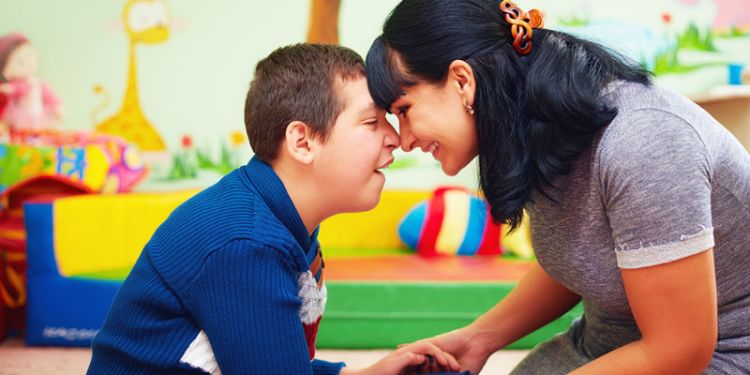Leeds research into the impact of illness fabrication allegations on disabled families: 5 News

5 News has announced new School of Law research into the impact that illness fabrication allegations have on disabled families.
Broadcast on 5 News on 14 November 2023, the research was carried out by Chair in Law and Social Justice, Professor Luke Clements, and School of Law researcher Dr Ana Laura Aiello and is based on research undertaken by the Cerebra Legal Entitlements and Problem-solving (LEaP) Project at the School of Law. Luke Clements and Dr Aiello’s research unit is funded by the disabled children’s charity Cerebra.
Newly published, the report concerns the prevalence and impact on disabled children and their families of allegations that a parent is fabricating or inducing their child’s illness. This condition is called ‘Fabricated or Induced Illness’ (FII) and used to be referred to as ‘Munchausen’s Syndrome by Proxy’. FII is generally considered to be a rare (or ‘very rare’) condition.
Professor Clements, when launching the research report, stated:
The evidence suggests a significant increase in the numbers of parents – especially disabled parents – being inappropriately accused of FII. These allegations have a devastating and often life-long impact on families – including their children: the very people the system is supposed to protect. There is an urgent need for a radical overhaul of policy and practice in this field.
Families wrongly accused
The report found that FII allegations against parents of disabled children appear to be widespread and increasing. Disabled parents appear to be four times more likely to be accused of FII than non-disabled parents – suggesting a significant risk of widespread unlawful discrimination against disabled people.
The making of an FII allegation (by NHS practitioners, schools and local authority children’s services) often causes devastating and life-long trauma to those accused and to their children. Professor Clements and Dr Aiello found that half the allegations were made after a parent carer had complained about the actions of the relevant public body, and most allegations were not followed up or were abandoned. The research concludes that FII guidance is likely to give rise to a very high number of ‘false positives’ (people being wrongly accused of FII).
The research underpinning the report involved an analysis of data obtained from a survey of 387 parent carers, freedom of information requests and on-line searches of local authority websites.
Calls for urgent revisions to guidance
The report calls for urgent revision to current Royal College of Paediatrics and Child Health (RCPCH) FII guidance. These revisions include: (1) to address its failure to recognise the harm to parents and children caused by allegations of FII; (2) to address the danger that its ‘alerting signs’ may have an unlawful discriminatory impact on disabled parents; and (3) to acknowledge that its ‘alerting signs’ (of FII) are unsupported by any peer reviewed research.
The report is available for download here.
Cerebra is a national charity helping children with brain conditions and their families to discover a better life together.
Contacts
Research team: Professor Luke Clements l.j.clements@leeds.ac.uk and Dr Ana Laura Aiello A.L.Aiello@leeds.ac.uk both of The School of Law Leeds University.
Cerebra: Elaine Collins, Impact and Content Development Manager, Comms@cerebra.org.uk




